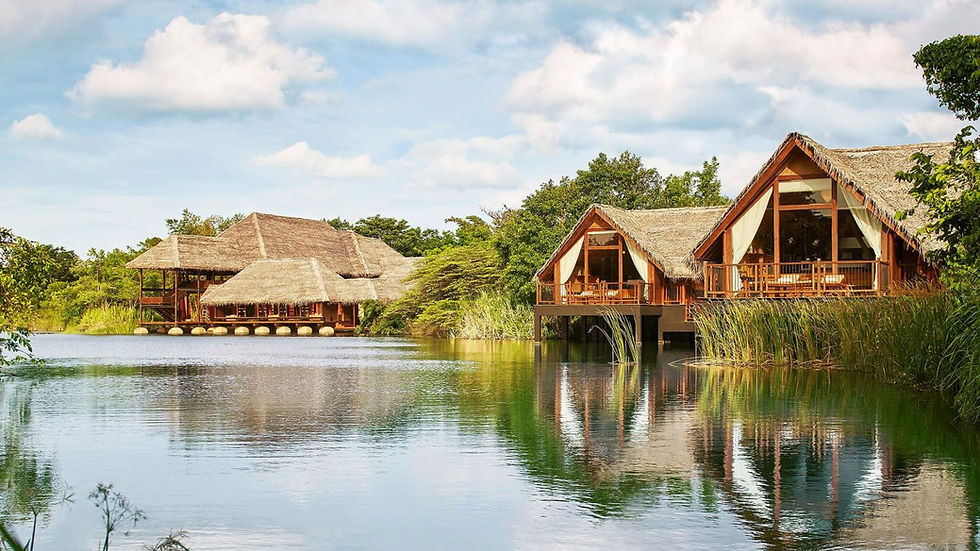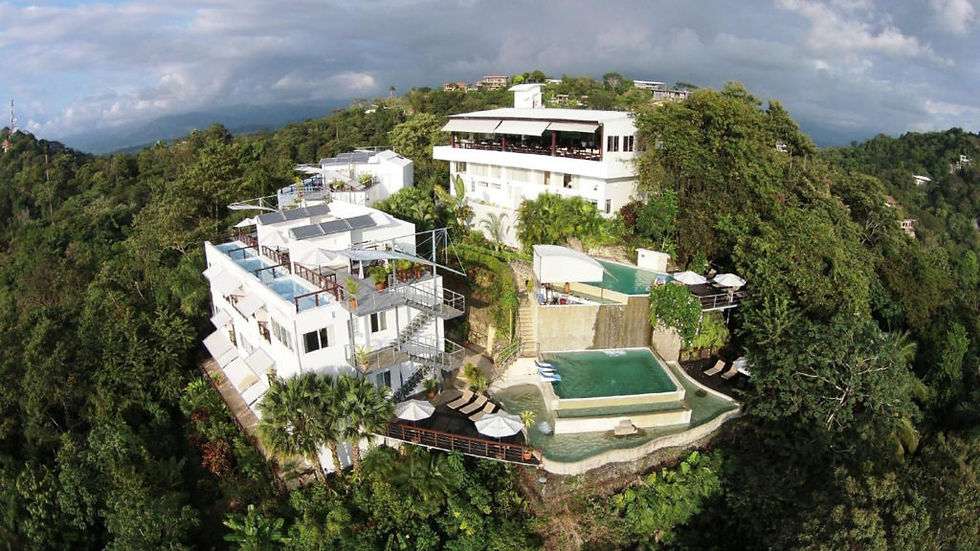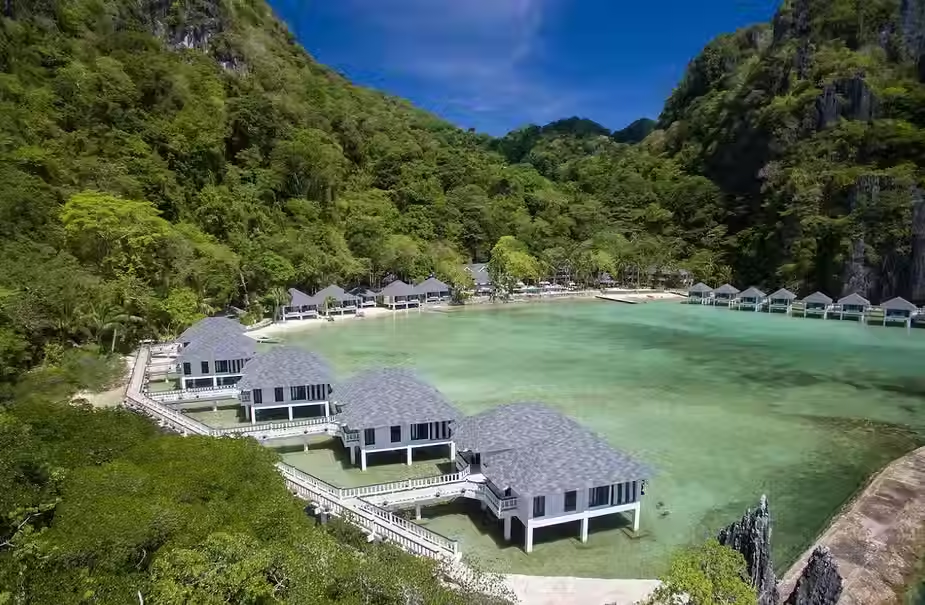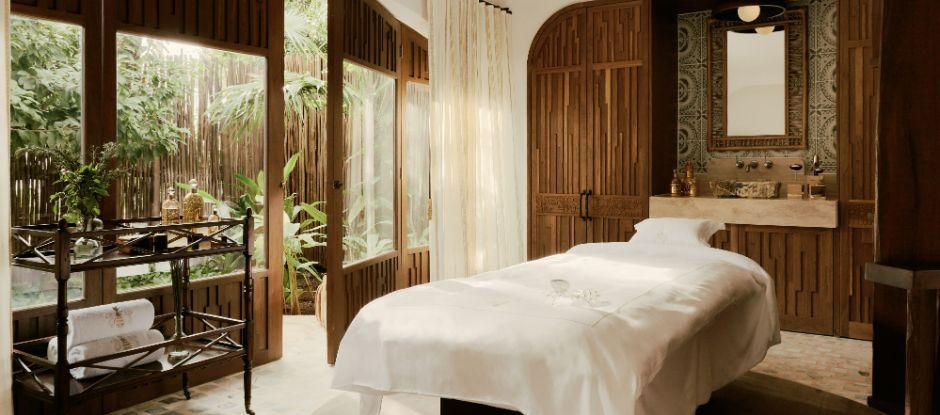10 ways to identify a 'Sustainable Hotel' in 2025
- Andy Eames
- Jul 10
- 4 min read
The concept of 'Sustainable hotels' has been around for over a decade now. When Sustainable Travel NZ Ltd was founded a minority of ‘places to sleep’ had a functioning environmentally conscious sustainability policy. Now it’s impossible to find a hotel without at least a Sustainability Statement. The effectiveness of such ‘sustainability statements’ and policies are of course open to debate, but below are many of the considerations that hotels, resorts, lodges and others tackle with varying degrees of success and efficiency in 2025.

1. Green Building Certifications
One of the most forward-thinking trends seen in eco-friendly hotels is the adoption of green building certifications. Programs such as LEED (Leadership in Energy and Environmental Design), Green Key, and EarthCheck serve as credible proof of a hotel’s commitment to sustainability and provide frameworks for implementing environmentally responsible practices.
These certifications emphasise areas such as energy efficiency, water conservation, waste reduction, and the use of sustainable building materials.
Why It Matters: Earning a green certification sets a hotel apart, building trust and appeal among eco-conscious guests who actively seek out sustainable options.
2. Energy-Efficient Technologies
Energy conservation is a cornerstone of sustainable hotel operations. Modern eco-friendly hotels are increasingly adopting technologies such as energy-efficient lighting, smart thermostats, and advanced HVAC systems to minimize energy consumption.
Additionally, the integration of renewable energy sources like solar panels and wind turbines is becoming more common.
Why It Matters: Reducing energy use not only cuts operational costs but also supports global efforts to protect the environment—something every individual and business can contribute to for a healthier planet.

3. Water Conservation Innovations
Conservation of water is one of the significant challenges that call for efficient management in the hospitality institutions. Measures including the use of low-flow fixtures, water-efficient showers, and gray water recycling are being adopted in the hotels. Some hotels are also putting their efforts into incorporating rainwater harvesting systems for backup water supply.
Why It Matters: Water conservation is essential due to its scarcity and its potential to significantly reduce operational costs.
4. Waste Reduction and Recycling Programs
To enhance waste management practices, many eco-friendly hotels have implemented comprehensive waste reduction and recycling initiatives. These programs focus on minimising plastic usage, promoting recycling, and partnering with local organizations to collect and compost organic waste. Such efforts ensure responsible disposal and support more sustainable operations.
Why It Matters: Effective waste management reduces landfill contributions and supports a circular economy, reinforcing long-term environmental sustainability.
5. Sustainable Practices in the Food and Beverage Sector
The food and beverage operations within sustainable hotels are evolving with a strong emphasis on environmentally conscious practices. Many hotels are embracing farm-to-table concepts, sourcing ingredients locally and organically to reduce their carbon footprint and support regional farmers. In addition, there is a growing focus on minimising food waste through strategies such as offering flexible serving size options, and redistributing surplus food to local charities or food banks.
These initiatives not only reduce environmental impact but also promote ethical consumption and resource efficiency across the hospitality industry.
A notable example is the Six Senses Hotels and Resorts, which operates globally with a strong commitment to sustainability. At their properties, such as Six Senses Yao Noi in Thailand, they grow a large portion of their produce on-site in organic gardens, reducing dependency on external suppliers. Leftover food is composted or donated to nearby communities, exemplifying a closed-loop system.

6. Eco-Friendly Amenities
Some examples of the amenities being offered by 'high end hotels'include reusable water bottles, toiletries which are biodegradable, and cleaning products that have been tested to be environmentally friendly. Furthermore, some of the hotels also offer the guests details on how they can participate in green activities in the local area.
7. Green Certifications for Suppliers
However, elements of sustainable marketing are not restricted to the eco-friendly hotels’ internal operations but also with their supply partners. This encompasses the ability to identify green suppliers, for instance, those who use environmentally friendly packaging or make effort to cut their emissions.

8. Smart Room Technologies
Smart room technologies used in hotel rooms are the major drivers of change in the guest experience while ensuring that the hotels are environmentally friendly. Energy-efficient lighting controls, climate control technology, and presence sensors for guest rooms improve energy efficiency and the comfort of the guests.
9. Green Building Materials
More and more eco-friendly hotels, especially in Asia, are implementing green building materials in their construction including bamboo, reclaimed lumber, and recycled metal. Most of these materials not only have a low environmental effect but at the same give pleasing appearance and are often long-lasting structures.
10. Community Engagement and Education
Sustainable hotels are increasingly going beyond internal practices by actively engaging with local communities and educating guests about environmental issues. These efforts often include organizing eco-tours that showcase local biodiversity, partnering in conservation projects such as beach cleanups or reforestation, and offering workshops or interactive sessions that teach sustainable habits.
A great example is the Jetwing Vil Uyana in Sri Lanka, which integrates wetland conservation with guest education. The hotel conducts guided nature walks through its on-site sanctuary, helping guests understand the importance of wetland ecosystems while directly supporting local biodiversity.
The El Nido Resorts in the Philippines run marine conservation programs involving both guests and local residents. These include coral reef monitoring, responsible snorkeling practices, and educational talks on marine protection.
Contact us at info@sustainabletravel.co.nz for more information and bookings at your favourite sustainable hotel or destination.




Comments